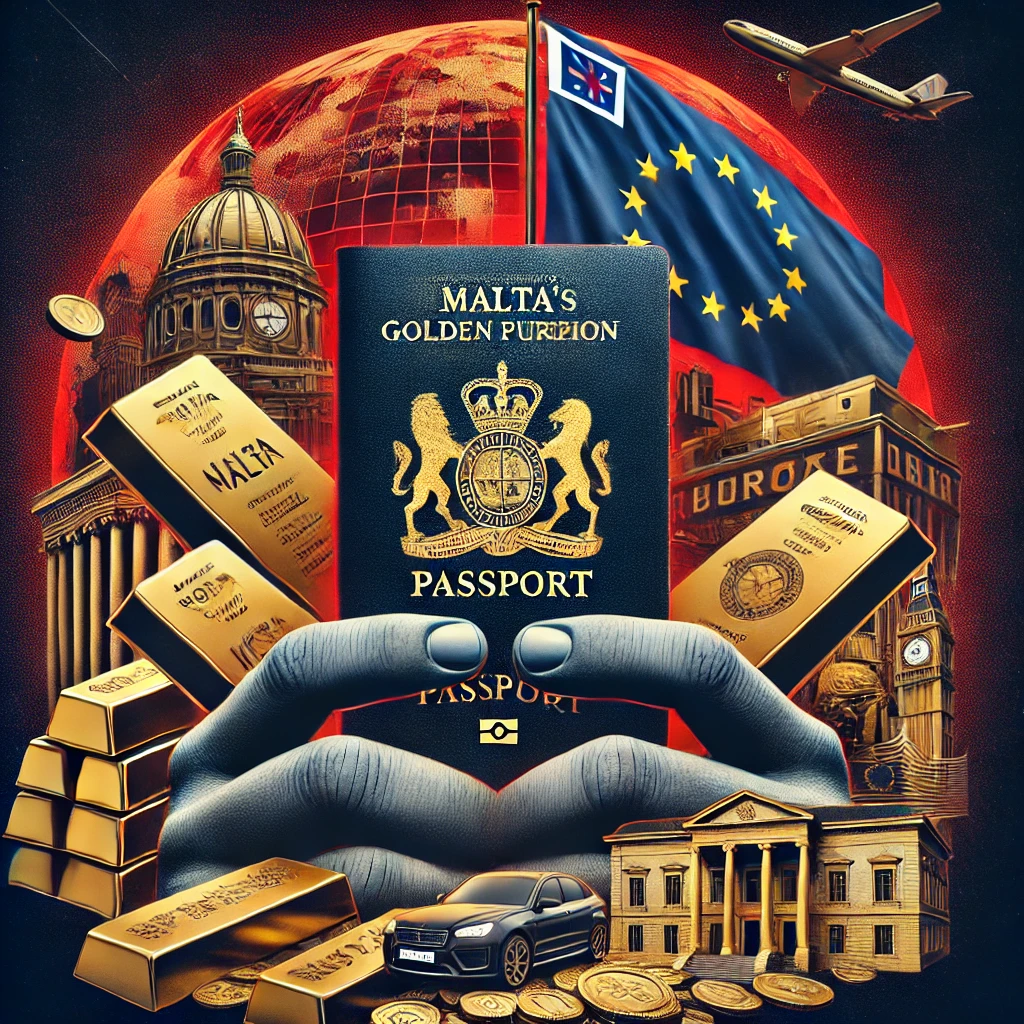The Maltese government has once again come under fire for its controversial “golden passport” scheme, which allows wealthy foreign nationals to purchase citizenship in return for hefty investments. This programme, which has long been criticised as a loophole for the global elite to access European Union (EU) rights, recently gained legal backing from a top advisor at the Court of Justice of the European Union (CJEU). The decision has sparked intense debate across the EU, as critics argue it compromises the bloc’s values, integrity, and security.
Malta’s Golden Passport Programme Under Scrutiny
Malta’s cash-for-citizenship scheme allows affluent individuals, including Russian oligarchs, business tycoons, and even figures with questionable backgrounds, to obtain Maltese citizenship. In exchange for a minimum donation of €600,000 (approximately £520,000), along with the purchase of property and further voluntary donations, wealthy applicants can secure EU citizenship, which grants them the right to live and work anywhere in the EU’s 27 member states. This programme has faced sharp criticism from other EU nations, particularly due to concerns over its potential to facilitate money laundering and criminal activity.
Despite the serious allegations, the CJEU advisor, Anthony Collins, stated that EU law does not explicitly prohibit such programmes, leaving it to individual member states to determine their own citizenship rules. This legal stance has raised alarm, as many believe it sets a dangerous precedent for other European countries that may follow Malta’s lead, further eroding the integrity of the EU’s citizenship framework.
A Blow to EU Security and Values
Critics argue that Malta’s golden passport scheme undermines the very foundation of EU citizenship. The European Commission has been vocal in its opposition, accusing Malta of prioritising profit over the bloc’s security and cohesion. In 2022, the Commission filed a legal challenge against Malta, arguing that the programme violated the principle of sincere cooperation, which is fundamental to the functioning of the EU. However, the recent legal opinion from Collins, if followed by the CJEU, could significantly weaken the Commission’s case and bolster Malta’s defences.
The European Parliament has also weighed in, with reports suggesting that the investment migration industry generated over €21 billion across Europe between 2011 and 2019. While some argue that these programmes provide much-needed revenue, the broader consequences—particularly the risk of enabling criminal networks to exploit EU freedoms—cannot be ignored.
Malta’s Tarnished Reputation
Malta has long been criticised for its lax anti-money laundering measures and its status as a safe haven for the ultra-rich, including individuals connected to organised crime and corruption. The golden passport programme has only deepened these concerns, with many accusing the government of turning a blind eye to the long-term ramifications of such schemes. By allowing the sale of EU citizenship to wealthy elites, including those involved in drug trafficking and money laundering, Malta is putting the security of the entire union at risk.
Implications for the European Union
This case highlights a growing rift within the EU, as some member states exploit loopholes in EU law to benefit financially from investment migration. While countries like Portugal and Greece have scaled back or even ended their golden visa programmes, Malta continues to defend its controversial scheme. The EU now faces a critical juncture: can it effectively regulate citizenship rights across its member states, or will it allow nations like Malta to dilute the meaning of EU citizenship?
A Call for Reform
As the EU awaits the CJEU’s final ruling, pressure is mounting for broader reforms to prevent the misuse of EU citizenship. The sale of passports to the highest bidder not only weakens the union’s legal framework but also damages its global reputation. Many are calling on the European Commission to introduce stricter controls and oversight mechanisms to ensure that citizenship is granted based on genuine ties to a member state, not financial incentives.
In conclusion, Malta’s golden passport scheme represents a significant threat to the EU’s integrity and values. While the financial benefits for Malta are clear, the long-term risks for the rest of the union—ranging from security vulnerabilities to the erosion of citizenship principles—are far too great to ignore. Europe must act decisively to close this loophole and safeguard the integrity of its citizenship system.






